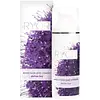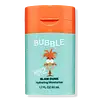What's inside
What's inside
 Key Ingredients
Key Ingredients

 Benefits
Benefits

 Concerns
Concerns

 Ingredients Side-by-side
Ingredients Side-by-side

Water
Skin ConditioningPersea Gratissima Oil
Skin ConditioningCaprylic/Capric Triglyceride
MaskingDiethylhexyl Carbonate
EmollientButyrospermum Parkii Butter
Skin ConditioningGlycerin
HumectantGlyceryl Stearate Citrate
EmollientPolyglyceryl-3 Stearate
EmulsifyingHydrogenated Lecithin
EmulsifyingCetearyl Alcohol
EmollientSodium Caproyl Prolinate
HumectantTocopheryl Acetate
AntioxidantSodium Hyaluronate
HumectantPhenoxyethanol
PreservativeGlyceryl Laurate
EmollientPlankton Extract
Skin ConditioningSodium Benzoate
MaskingPotassium Sorbate
PreservativeSodium Acrylates Copolymer
Lecithin
EmollientPolyacrylate Crosspolymer-6
Emulsion StabilisingParfum
MaskingCitronellol
PerfumingEugenol
PerfumingGeraniol
PerfumingLinalool
PerfumingWater, Persea Gratissima Oil, Caprylic/Capric Triglyceride, Diethylhexyl Carbonate, Butyrospermum Parkii Butter, Glycerin, Glyceryl Stearate Citrate, Polyglyceryl-3 Stearate, Hydrogenated Lecithin, Cetearyl Alcohol, Sodium Caproyl Prolinate, Tocopheryl Acetate, Sodium Hyaluronate, Phenoxyethanol, Glyceryl Laurate, Plankton Extract, Sodium Benzoate, Potassium Sorbate, Sodium Acrylates Copolymer, Lecithin, Polyacrylate Crosspolymer-6, Parfum, Citronellol, Eugenol, Geraniol, Linalool
Water
Skin ConditioningIsononyl Isononanoate
EmollientGlycerin
HumectantHeptyl Undecylenate
EmollientGlyceryl Stearate Citrate
EmollientCaprylic/Capric Triglyceride
MaskingPolyglyceryl-3 Stearate
EmulsifyingCetyl Alcohol
EmollientAloe Barbadensis Leaf Juice Powder
Skin ConditioningAcrylates/C10-30 Alkyl Acrylate Crosspolymer
Emulsion StabilisingPersea Gratissima Oil
Skin ConditioningButyrospermum Parkii Butter
Skin ConditioningGlucose
HumectantHydrolyzed Pea Protein
EmollientSodium Chloride
MaskingSodium Succinate
BufferingOenothera Biennis Oil
EmollientHoya Lacunosa Flower Extract
Skin ConditioningAnthemis Nobilis Flower Extract
MaskingHydrogenated Lecithin
EmulsifyingArginine
MaskingTocopheryl Acetate
AntioxidantTocopherol
AntioxidantSodium Phytate
Phenoxyethanol
PreservativeWater, Isononyl Isononanoate, Glycerin, Heptyl Undecylenate, Glyceryl Stearate Citrate, Caprylic/Capric Triglyceride, Polyglyceryl-3 Stearate, Cetyl Alcohol, Aloe Barbadensis Leaf Juice Powder, Acrylates/C10-30 Alkyl Acrylate Crosspolymer, Persea Gratissima Oil, Butyrospermum Parkii Butter, Glucose, Hydrolyzed Pea Protein, Sodium Chloride, Sodium Succinate, Oenothera Biennis Oil, Hoya Lacunosa Flower Extract, Anthemis Nobilis Flower Extract, Hydrogenated Lecithin, Arginine, Tocopheryl Acetate, Tocopherol, Sodium Phytate, Phenoxyethanol
Ingredients Explained
These ingredients are found in both products.
Ingredients higher up in an ingredient list are typically present in a larger amount.
This ingredient is also known as shea butter. It is an effective skin hydrator and emollient.
Emollients help soothe and soften your skin. It does this by creating a protective film on your skin. This barrier helps trap moisture and keeps your skin hydrated. Emollients may be effective at treating dry or itchy skin.
Shea butter is rich in antioxidants. Antioxidants help fight free-radicals, or molecules that may harm the body. It is also full of fatty acids including stearic acid and linoleic acid. These acids help replenish the skin and keep skin moisturized.
While Shea Butter has an SPF rating of about 3-4, it is not a sunscreen replacement.
Shea butter may not be fungal acne safe. We recommend speaking with a professional if you have any concerns.
Learn more about Butyrospermum Parkii ButterThis ingredient is an emollient, solvent, and texture enhancer. It is considered a skin-softener by helping the skin prevent moisture loss.
It helps thicken a product's formula and makes it easier to spread by dissolving clumping compounds.
Caprylic Triglyceride is made by combining glycerin with coconut oil, forming a clear liquid.
While there is an assumption Caprylic Triglyceride can clog pores due to it being derived from coconut oil, there is no research supporting this.
Learn more about Caprylic/Capric TriglycerideGlycerin is already naturally found in your skin. It helps moisturize and protect your skin.
A study from 2016 found glycerin to be more effective as a humectant than AHAs and hyaluronic acid.
As a humectant, it helps the skin stay hydrated by pulling moisture to your skin. The low molecular weight of glycerin allows it to pull moisture into the deeper layers of your skin.
Hydrated skin improves your skin barrier; Your skin barrier helps protect against irritants and bacteria.
Glycerin has also been found to have antimicrobial and antiviral properties. Due to these properties, glycerin is often used in wound and burn treatments.
In cosmetics, glycerin is usually derived from plants such as soybean or palm. However, it can also be sourced from animals, such as tallow or animal fat.
This ingredient is organic, colorless, odorless, and non-toxic.
Glycerin is the name for this ingredient in American English. British English uses Glycerol/Glycerine.
Learn more about GlycerinGlyceryl Stearate Citrate is a citric acid ester of glyceryl stearate.
It is an emulsifier, emollient, and a surfactant.
Emulsifiers help stabilize a product. It does this by preventing certain ingredients from separating. Common ingredients include oils and water, which do not mix naturally. Emulsifiers have properties that help keep ingredients such as these together.
Emollients help soothe and soften the skin. They do this by creating a protective film on your skin. This barrier helps trap moisture and keeps your skin hydrated. Emollients may be effective at treating dry or itchy skin.
Surfactants help gather oils, dirt, and other pollutants from the skin. This helps them to be easily rinsed away.
Learn more about Glyceryl Stearate CitrateHydrogenated Lecithin is created from the hydrogenation of lecithin (a group of phospholipids). Hydrogenation is a chemical reaction between hydrogen and another element.
This ingredient is an emollient and emulsifier. As an emollient, it helps soften skin by trapping moisture within. As an emulsifier, it prevents oil and water ingredients from separating.
Persea Gratissima Oil is also known as avocado oil.
Avocado Oil has antioxidant properties. It is mostly made up of the glycerides of fatty acids. About 67% of these fatty acids is made up of oleic acid. Palmitic acid and linoleic acid are also present.
These fatty acids help hydrate and soften the skin. It may increase collagen content in the skin. Collagen helps keep your skin plump and firm. This ingredient helps reduce inflammation and has not shown to clog pores.
This ingredient may not be fungal-acne safe due to its high fatty acid content.
Avocados also have B vitamins, vitamin K, vitamin C, vitamin E, and potassium.
Learn more about Persea Gratissima OilPhenoxyethanol is a preservative that has germicide, antimicrobial, and aromatic properties. Studies show that phenoxyethanol can prevent microbial growth. By itself, it has a scent that is similar to that of a rose.
It's often used in formulations along with Caprylyl Glycol to preserve the shelf life of products.
This ingredient comes from glycerin and stearic acid. It has emulsifying properties.
Due to its stearic acid (which is a fatty acid) base, this ingredient may not be Malassezia folliculitis, or fungal acne, safe.
Tocopheryl Acetate is AKA Vitamin E. It is an antioxidant and protects your skin from free radicals. Free radicals damage the skin by breaking down collagen.
One study found using Tocopheryl Acetate with Vitamin C decreased the number of sunburned cells.
Tocopheryl Acetate is commonly found in both skincare and dietary supplements.
Learn more about Tocopheryl AcetateWater. It's the most common cosmetic ingredient of all. You'll usually see it at the top of ingredient lists, meaning that it makes up the largest part of the product.
So why is it so popular? Water most often acts as a solvent - this means that it helps dissolve other ingredients into the formulation.
You'll also recognize water as that liquid we all need to stay alive. If you see this, drink a glass of water. Stay hydrated!
Learn more about Water